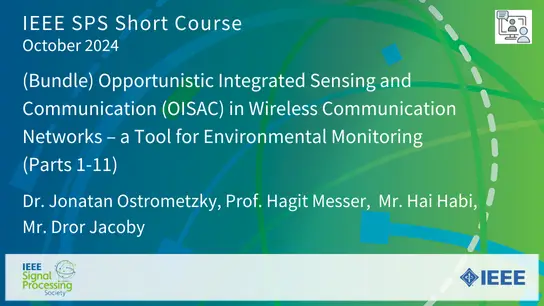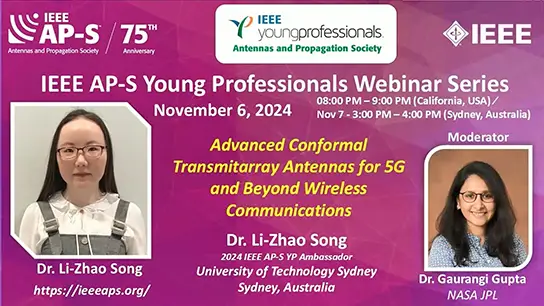Slides for: A Framework of Robust Transmission Design for IRS-Aided MISO Communications with Imperfect Cascaded Channels
Dr. Cunhua Pan, Gui Zhou (slides)
-
Members: FreeSPS
IEEE Members: $11.00
Non-members: $15.00Pages/Slides: 22
27 Apr 2022
Intelligent reflection surface (IRS) has recently been recognized as a promising technique to enhance the performance of wireless systems due to its ability of reconfiguring the signal propagation environment. However, the perfect channel state information (CSI) is challenging to obtain at the base station (BS) due to the lack of radio frequency (RF) chains at the IRS. Because most of the existing channel estimation methods were developed to acquire the cascaded BS-IRS-user channels, this talk is the first work to study the robust beamforming based on the imperfect cascaded BS-IRS-user channels at the transmitter (CBIUT). Specifically, the transmit power minimization problems are formulated subject to the worst-case rate constraints under the bounded CSI error model and the rate outage probability constraints under the statistical CSI error model, respectively. After approximating the worst-case rate constraints by using the S-procedure and the rate outage probability constraints by using the Bernstein-type inequality, the reformulated problems can be efficiently solved. Numerical results show that the negative impact of the CBIUT error on the system performance is greater than that of the direct CSI error.number of trainable parameters is much fewer than the data-driven deep-learning-based signal detector, the model-driven deep-learning-based MIMO detector can be rapidly trained with a much smaller data set. The proposed MIMO detector can be extended to soft input-soft output detection easily. Furthermore, we investigate joint MIMO channel estimation and signal detection, where the detector takes channel estimation error and channel statistics into consideration, while channel estimation is refined by detected data and considers the detection error. Based on numerical results, the model-driven deep-learning-based MIMO detector significantly improves the performance of corresponding traditional iterative detectors, outperforms other deep-learning-based MIMO detectors and exhibits superior robustness to various mismatches.


